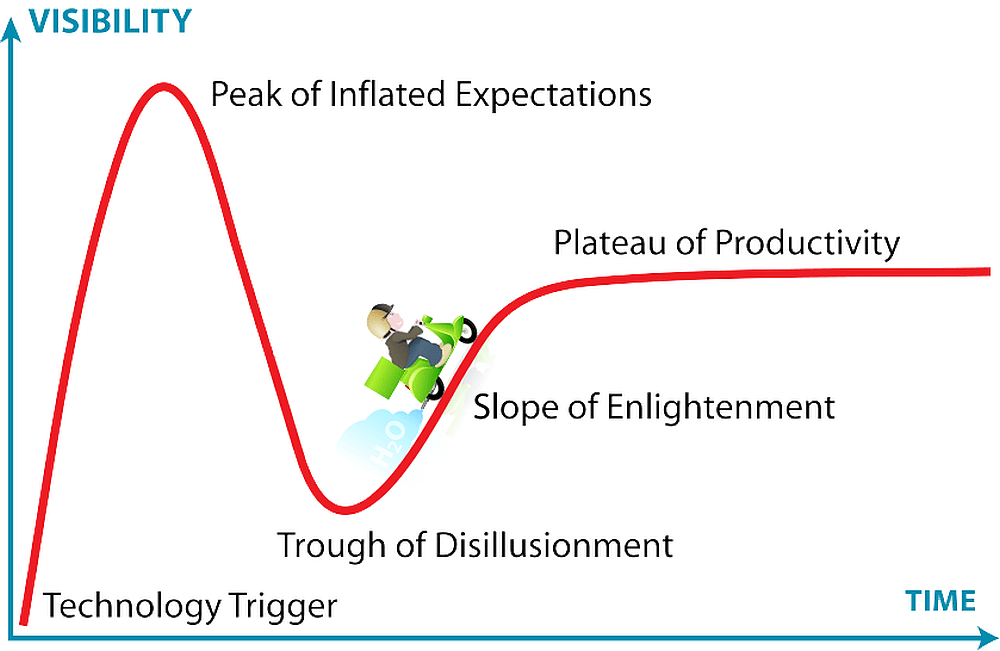
[Image above] Credit: Tommy Krombacher, Unsplash
Last February, we looked at a study by Massachusetts Institute of Technology researchers on what infrastructure would be needed to enable an electric vehicle ecosystem. Charging stations were one of the most important aspects identified.
“Expanded home, work and public charging infrastructure may address both real and imagined range constraints by allowing drivers to charge between and during trips,” the MIT researchers wrote in the paper.
They noted that policymakers at the federal level have a role to play in expanding charging infrastructure, for example by providing incentives to encourage private sector competition in this area. Based on a recent announcement by the United States Departments of Transportation and Energy, it appears the feds are beginning to fulfill their role.
On Nov. 15, 2021, President Biden signed the Infrastructure Investment and Jobs Act into law. Among its many initiatives, this bipartisan law established the National Electric Vehicle Infrastructure (NEVI) Formula Program, which aims “to provide funding to States to strategically deploy electric vehicle (EV) charging infrastructure and to establish an interconnected network to facilitate data collection, access, and reliability,” according to a Department of Transportation fact sheet.
Last Thursday, Feb. 10, the U.S. Departments of Transportation and Energy announced they will begin making available the nearly $5 billion included in the infrastructure law for the NEVI Formula Program. The funding, which will be distributed over the next five years, will be used to create a network of EV charging stations along designated Alternative Fuel Corridors, which are a national network for alternative fueling and electric vehicle charging infrastructure along national highway system corridors.
“Americans need to know that they can purchase an electric vehicle and find convenient charging stations when they are using Interstates and other major highways,” says Deputy Federal Highway Administrator Stephanie Pollack in a Department of Transportation press release. “The new EV formula program will provide states with the resources they need to provide their residents with reliable access to an EV charging station as they travel.”
To access the NEVI funds, each state is required to submit an EV Infrastructure Deployment Plan to the new Joint Office of Energy and Transportation that describes how the state intends to use its share of the funds consistent with Federal Highway Administration guidance.
The Department of Transportation also released a new, free resource to help rural communities take full advantage of the funds.
Webinar: Introduction to the Joint Office of Energy and Transportation
U.S. Secretary of Energy Jennifer M. Granholm and U.S. Secretary of Transportation Pete Buttigieg signed a memorandum of understanding to create the Joint Office of Energy and Transportation in December 2021. Learn more about the new office during a webinar on February 24, 2–3 p.m. Eastern.
An Insider article on the announcement elaborates some more details of the plan, including that a state can apply for funding to place charging stations in other public places such as transit stations, schools, and parking lots once its corridors are “fully built out.” A corridor will be considered built out once it has a series of charging stations no more than 50 miles apart along Interstate highways, with each station featuring at least four DC fast charging plugs capable of providing 150 kilowatts of energy each.
It is important to note that “DC fast charging plugs” refer to a variety of charger types. Learn more about DC fast charging plugs in the video below.

Credit: Gautham Ram, YouTube
There will be $615 million available to states in fiscal year 2022. A state-by-state guide for NEVI funding until 2026 is available at this link.
Market analysts note that this funding is only a small first step toward reaching the Biden Administration’s goal of 500,000 public EV chargers by 2030 (the U.S. currently has just over 100,000).
As a Grist article explains, “According to the International Council on Clean Transportation, it costs between $30,000 and $140,000 to install a single DC fast charger. That means that the cash allocated could pay for between 36,000 and 166,000 fast chargers across the country—although it could be much more if states and private companies contribute their own funds, too.”
However, U.S. Secretary of Transportation Pete Buttigieg is confident that EV charging will be increasingly cost-effective even without government support. “The fuel savings of electric compared to gas or diesel continue to bear out,” he says in the Grist article. “We just haven’t yet seen the market mature.”
Author
Lisa McDonald
CTT Categories
- Energy
- Market Insights
- Transportation
Spotlight Categories
- Member Highlights
Related Posts
Hype cycles: The uphill climb for hydrogen bikes
June 26, 2025


